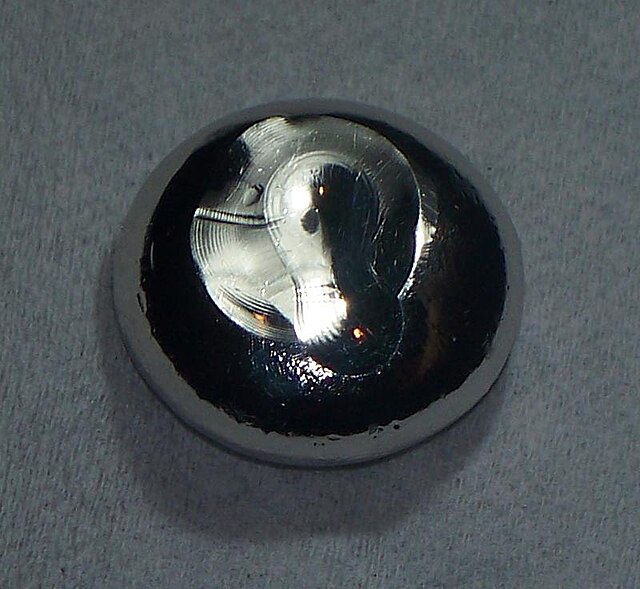Iridium is a chemical element; it has symbol Ir and atomic number 77. A very hard, brittle, silvery-white transition metal of the platinum group, it is considered the second-densest naturally occurring metal with a density of 22.56 g/cm3 (0.815 lb/cu in) as defined by experimental X-ray crystallography. 191Ir and 193Ir are the only two naturally occurring isotopes of iridium, as well as the only stable isotopes; the latter is the more abundant. It is one of the most corrosion-resistant metals, even at temperatures as high as 2,000 °C (3,630 °F).
Iridium
One troy ounce (31.1035 grams) of arc-melted iridium
Hydrated iridium trichloride, a common salt of iridium.
The Greek goddess Iris, after whom iridium was named.
In chemistry, a transition metal is a chemical element in the d-block of the periodic table, though the elements of group 12 are sometimes excluded. The lanthanide and actinide elements are called inner transition metals and are sometimes considered to be transition metals as well.
The first row of transition metals, in order
From left to right, aqueous solutions of: Co(NO3)2 (red); K2Cr2O7 (orange); K2CrO4 (yellow); NiCl2 (turquoise); CuSO4 (blue); KMnO4 (purple).






